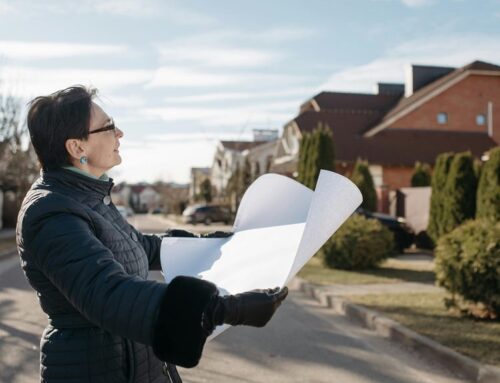Owning tax lien properties can be risky. Properties might suffer neglect, leading to costly repairs like structural damage or mold. Legal battles can ensue due to unclear ownership claims. Redemption risk is present if owners pay off back taxes, nullifying your investment. Clouded titles and unexpected liens can bring financial burdens and delays in property transfer. Understanding these risks is essential before investing.
Property Condition Uncertainty
When considering tax lien properties, one significant risk to be aware of is the uncertainty surrounding the condition of the property.
It’s important to understand that properties with tax liens may have been neglected or left uninhabited for an extended period. This neglect can lead to various issues, such as structural damage, mold infestations, or other costly repairs.
Without a thorough inspection before acquiring the property, you might find yourself facing unexpected expenses to make the property livable or sellable. It’s vital to factor in potential renovation costs when evaluating the overall investment in a tax lien property.
Engaging professionals to assess the property’s condition can help mitigate this risk and provide a clearer picture of what you’re getting into.
Legal Ownership Challenges
As I explore tax lien properties, one key aspect to be mindful of is the potential legal ownership challenges that may arise. When dealing with tax lien properties, it’s important to verify that the property’s ownership status is clear and legally sound.
Legal ownership challenges can stem from various issues such as unclear title histories, conflicting ownership claims, or unresolved inheritance disputes. These challenges can lead to lengthy legal battles, additional expenses, and even the loss of the property.
Conducting thorough research, obtaining title insurance, and seeking legal advice can help mitigate the risks associated with legal ownership challenges. It’s vital to address these issues proactively to safeguard your investment in tax lien properties.
Redemption Risk
To understand the risks involved in holding tax lien properties, it’s important to explore the concept of redemption risk.
Redemption risk refers to the possibility that the property owner will pay off the delinquent taxes and associated costs, thus redeeming the property and nullifying your investment. This risk is significant because if the property owner does redeem the property, you could lose out on potential profits and any expenses you incurred during the redemption period.
It’s essential to assess this risk before investing in tax lien properties to determine if the potential return outweighs the redemption risk. Keep in mind that redemption periods vary by location, so understanding the specific rules in the area where you’re investing is essential.
Title Issues
Let’s explore the potential risks associated with title issues when holding tax lien properties. Title problems can arise unexpectedly and complicate your investment. Here are some key concerns to keep in mind:
- Clouded Titles: Unclear ownership can lead to disputes and legal challenges.
- Forged Documents: Fraudulent paperwork can jeopardize your ownership rights.
- Missing Heirs: Inheritance issues may surface, delaying property transfer.
- Inaccurate Surveys: Boundary discrepancies could impact the property’s value and potential use.
Being attentive to these title issues is vital to protect your investment and ensure a smooth ownership experience.
Unexpected Liens
When it comes to tax lien properties, unexpected liens can be a real headache.
You might encounter hidden ownership disputes that can tie up your investment for a long time.
Additionally, undisclosed property debts can surface, potentially leading to financial losses.
Hidden Ownership Disputes
How can you verify that the tax lien property you’re eyeing doesn’t come with hidden ownership disputes or unexpected liens? It’s essential to thoroughly investigate before making any decisions. Here are some steps to help you uncover any potential hidden ownership disputes:
- Request a title search from a reputable title company.
- Look into any legal documents related to the property.
- Check for any outstanding lawsuits involving the property.
- Consult with a real estate attorney to review all relevant documents.
Undisclosed Property Debts
Undisclosed property debts, often in the form of unexpected liens, can pose significant risks when considering purchasing a tax lien property. These hidden debts may include outstanding mortgages, unpaid property taxes, or even contractor liens. If these debts come to light after acquiring the property, you as the new owner would be responsible for settling them. This could result in unexpected financial burdens, legal battles, and even the loss of the property altogether.
Conducting thorough due diligence before investing in a tax lien property is essential to uncover any potential undisclosed debts. Hiring a professional title search company or consulting with a real estate attorney can help you identify and assess these risks, protecting you from unpleasant surprises down the line.
Market Volatility
Exploring the world of tax lien properties can be a rewarding but risky endeavor, especially when pondering the impact of market volatility. In a volatile market, the value of tax lien properties can fluctuate rapidly, presenting challenges for investors. Here are some key points to ponder:
- Prices can experience sudden drops or spikes, affecting potential profits.
- Demand for tax lien properties may decrease during economic downturns.
- Market uncertainty can make it challenging to accurately predict property values.
- Investors need to stay informed about market trends to make well-informed decisions.
Renovation Costs
Exploring the domain of tax lien properties often involves considering the potential costs associated with renovations. When acquiring a tax lien property, it’s pivotal to factor in the expenses of bringing the property up to livable standards. Renovation costs can quickly add up, especially if the property requires extensive repairs or upgrades.
Before diving into a tax lien property investment, it’s vital to conduct a thorough inspection to assess the scope of necessary renovations accurately. From plumbing and electrical work to structural repairs and cosmetic enhancements, each aspect contributes to the overall renovation costs. Budgeting for these expenses upfront can help prevent financial strain down the road and guarantee a smoother renovation process for your tax lien property.
Conclusion
In the world of tax lien properties, it’s like sailing a treacherous sea filled with hidden dangers and unforeseen obstacles. Just as a sailor must carefully plot their course to avoid shipwreck, investors must approach tax lien properties with caution and diligence. By being aware of the risks involved, one can steer clear of potential pitfalls and guarantee a smooth journey towards financial success.
“Learn more about who we are and how we can help you! Discover Our Story today.”
Click Here to Learn About Us











